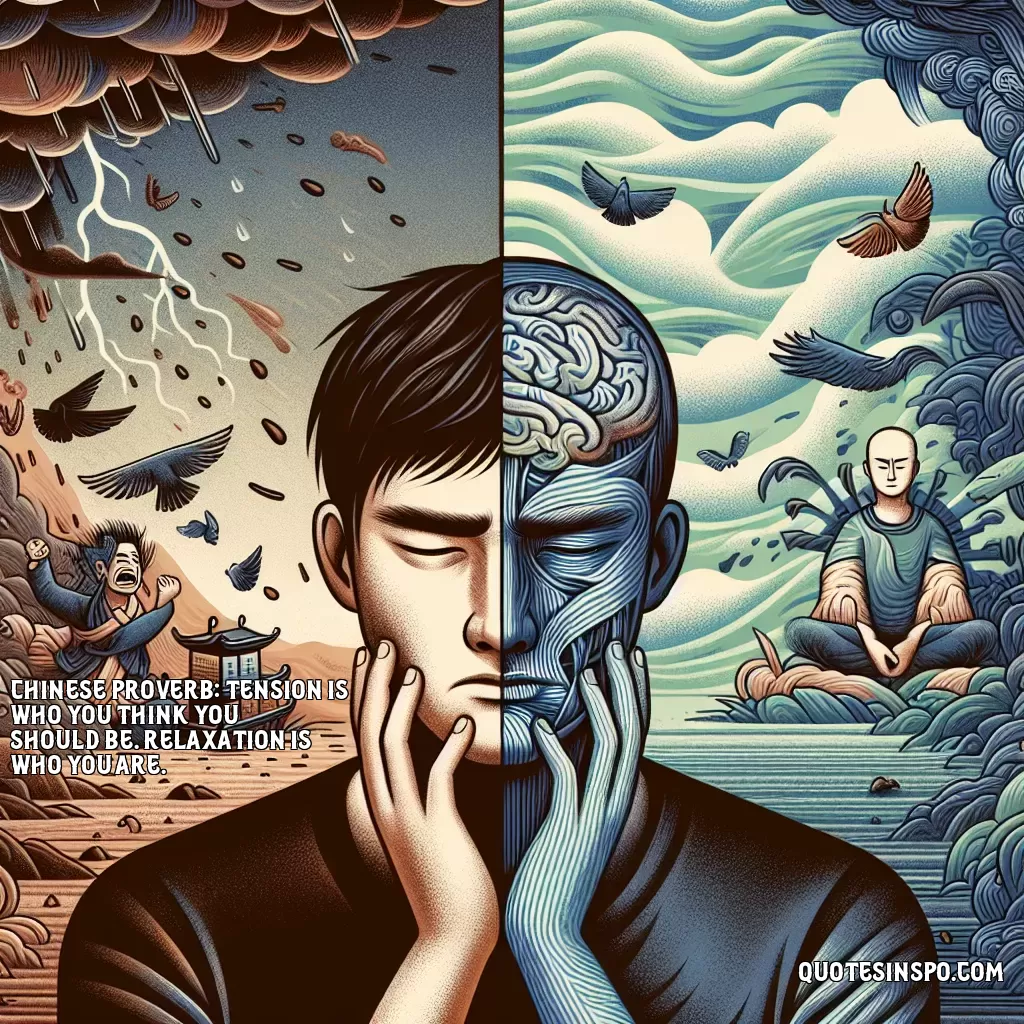
Chinese Proverb: Tension is who you think you should be. Relaxation is who you are.

Chinese Proverb: Tension is who you think you should be. Relaxation is who you are.
This Chinese proverb, "Tension is who you think you should be. Relaxation is who you are," emphasizes the contrast between our perceived identities and our true selves. The proverb suggests that tension arises from the expectations and pressures we place on ourselves or feel from external sources, urging us to conform to particular standards or roles that may not align with our true nature. This tension can stem from societal norms, family expectations, career ambitions, or personal aspirations. As we strive to meet these external benchmarks, we often experience stress and anxiety, resulting in tension. On the other hand, relaxation represents a state of being where one is authentic and true to oneself. It is about embracing who we genuinely are without the pretense of fulfilling anyone else's expectations. When we are relaxed, we are not bound by the constraints or pressures of who we think we should be; instead, we are free to express our true selves. This state of relaxation and authenticity allows for a sense of peace and contentment, as we are no longer at odds with ourselves. The proverb encourages introspection and self-acceptance. It invites us to let go of the tension created by external and self-imposed demands, and to find peace and fulfillment in our inherent nature. By recognizing and embracing our true selves, we allow ourselves to relax, leading to greater personal happiness and well-being. The message is clear: authenticity leads to tranquility, whereas striving to be someone we are not results in unrest.
Quote By: Lao Tzu
Lao Tzu, a central figure in Chinese philosophy, is traditionally regarded as the founder of Taoism and the author of the "Tao Te Ching," a foundational text of the tradition. Believed to have lived in the 6th century BCE, Lao Tzu emphasized living in harmony with the Tao, or the fundamental nature of the universe, promoting values such as simplicity, humility, and compassion. His teachings have profoundly influenced spiritual and philosophical thought in China and beyond, making him a timeless symbol of wisdom and tranquility.
Bio added on: 2025-02-18 18:52:16